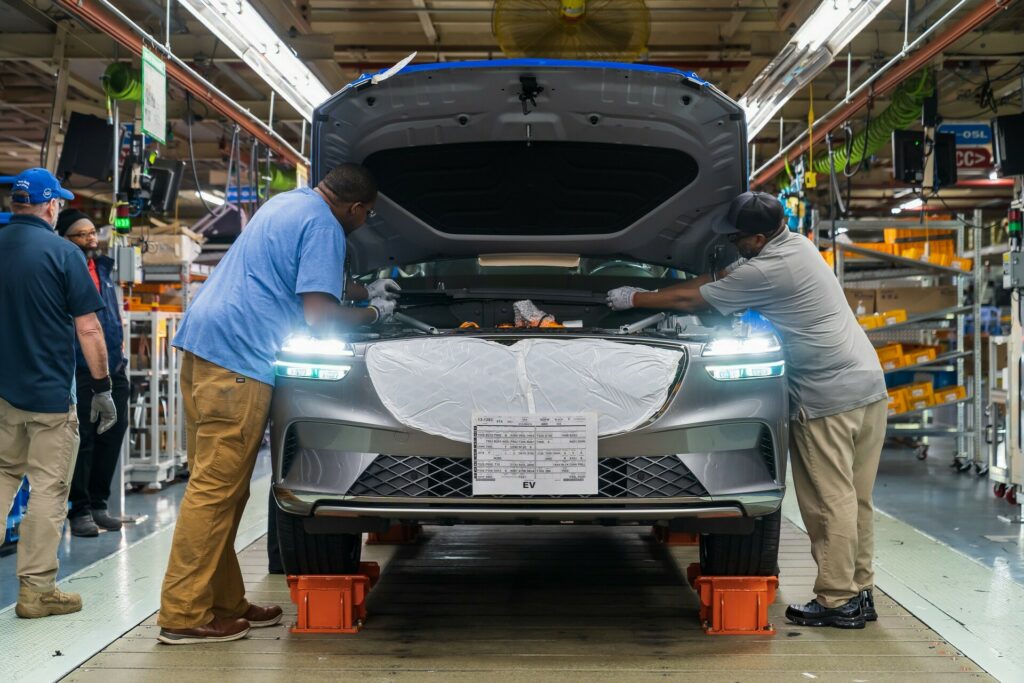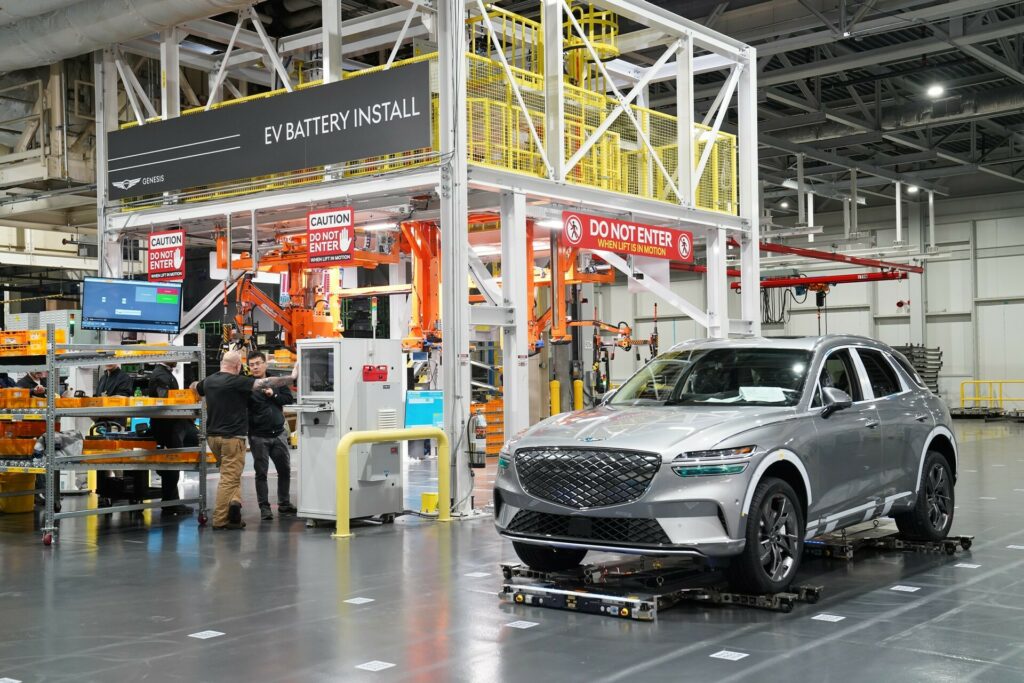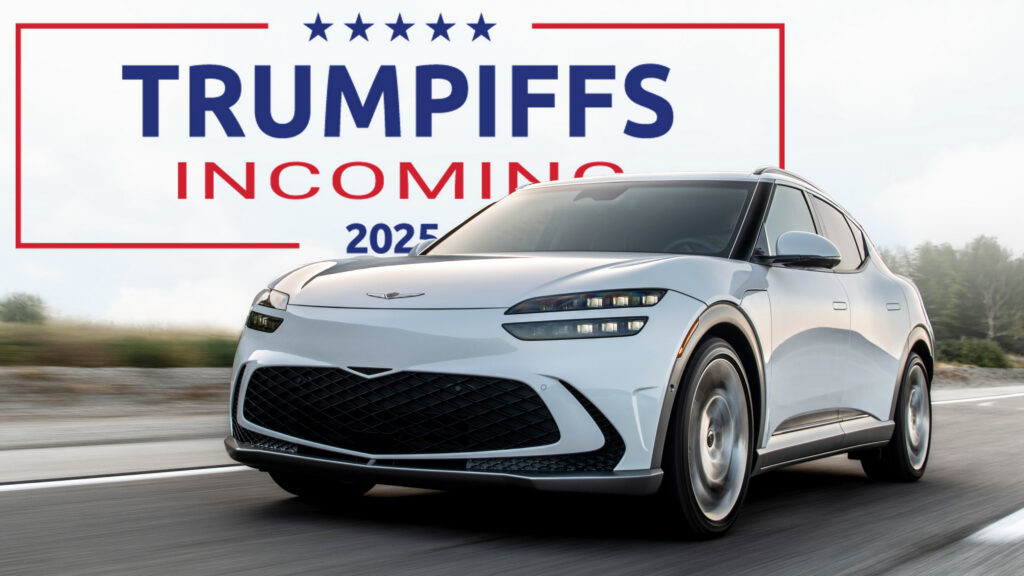- With a second Trump administration just months away, the Hyundai Motor Group is reportedly bracing for possible tariffs.
- Genesis could be hammered by a trade war as the luxury brand only builds the GV70 in the United States.
- Even if Genesis wanted to build additional vehicles in America, Korean union members would reportedly have to sign off on it first.
Donald Trump’s reelection continues to send shockwaves through the automotive industry as companies are bracing for devastating impacts ranging from crippling tariffs to the possible elimination of EV tax credits. While no one is sure what’s going to happen, some automakers appear to be bracing for a worst case scenario.
Genesis might want to be among them as the luxury brand only builds a handful of vehicles in the United States. The Electrified GV70 was the first Genesis produced in America and the first made outside of South Korea. Shortly thereafter, starting with the 2024 model year, all GV70s for the United States were built in Montgomery, Alabama.
More: Genesis To Build Gas-Powered GV70 SUVs Alongside EVs In America
While this provides some cushion, the GV70 wouldn’t be much of a savior if Trump hikes tariffs and Genesis has to rely heavily on U.S. production. This stands in sharp contrast to rivals such as BMW and Mercedes, which both have massive plants in the United States. These build popular crossovers such as the X3, X4, X5, X6, X7, and XM as well as the GLE, GLE Coupe, GLS, EQE SUV, and EQS SUV.
Even among the Hyundai Motor Group, Genesis is an oddball as many Hyundai and Kia vehicles are made in America. The Korea Times is reporting their mainstream brands are “moving to tackle the tariff risk by increasing vehicle production in the US,” but it’s not easy for Genesis.

Besides effectively having to start from scratch, the company reportedly needs Korean union workers to sign off on U.S. production. This would undoubtedly be a touchy issue, but the status quo could put Genesis and its vehicles at a significant disadvantage if tariffs are hiked. It also goes without saying, the Hyundai Motor Group only has so much production capacity in the United States, so juggling it between three brands would add an extra layer of complexity.
Of course, it’s not entirely clear what will happen when Trump returns to the White House. However, it may be a rough and unpredictable four years for automakers.





